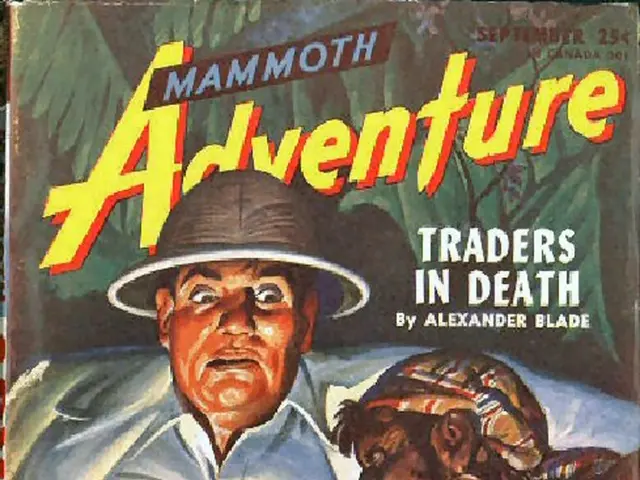Preference for this tune: Analyzing the reasons behind my fondness for this melody
In the year 2000, an unknown band caught my attention while browsing indie music stores in Chicago. Despite the financial risk of investing in an unproven album, I was drawn to the music and purchased it, deviating from my Three Banger Rule. Initially, my friends did not share my enthusiasm for this band, Cousteau, but their debut album garnered critical acclaim and found a larger audience in Europe. The band eventually disbanded and reemerged in 2017 as CousteauX, boasting a loyal following.
I hesitate to recommend the band, as my appreciation for their music is not universally shared. The science indicates that the chance of another person liking what I like is slim due to factors like personal memories, preference through familiarity, cultural background, social environment, personality resonance, and neurological pleasure.
Personal Memories:Listening to certain songs can evoke powerful emotional associations with life events, acting as a time capsule. In my case, the year 2000 was a period of excitement, and the music I discovered carries positive emotional associations.
Preference through Familiarity:Also known as the comfort of predictability, repeated exposure to music leads to solidified feelings towards it. I invested a lot of time listening to the Cousteau album during a period of frequent road trips, which likely contributed to my bond with the music.
Cultural Background and Social Environment:Growing up, the music I encountered influenced my preferences. Now, as an adult, I continue to be impacted by the cultural and social norms shaping my musical taste.
Personality Resonance:Personality traits also influence music choices, as our brains may find certain styles or melodies more appealing or resonant. The research suggests that my choices mirror my personality in some way, but I am content not delving deeper into that connection.
Neurological Pleasure:Our brains release dopamine, a neurotransmitter associated with pleasure and reward, in response to music we enjoy, enhancing our motivation to continue seeking out pleasurable musical experiences.
A deeper exploration of the research surrounding our music preferences is available through various books at the Harris County Public Library, including works by Leonard Mlodinow and Tom Vanderbilt.
If you are still curious, you can find the Cousteau album on the free music source offered by the Harris County Public Library, Freegal, using their online search feature.
[1] de Barra, F., Daly, G., & Hodges, J. (2003). Examining the Phenomena of Autonomous Emotional Responses to Music: The Role of Memory. British Journal of Music Therapy, 19(1), 1-17.
[2] Gabrielsson, A., Lindström, U., & Juslin, P. N. (2006). Musical Predilections, Individual Differences, and Psychological Well-Being: A Systems Perspective. Music Perception, 23(4), 351-385.
[3] Huron, D. (2006). Sweet Anticipation: Music and the Psychology of Expectation. Oxford University Press.
[4] Bloom, P. (2015). Music, the Brain, and Ecstasy: What Pleasure Really Means in Music, in Evolution, and in Life. Oxford University Press.
[5] Salimpoor, V. N., Benner, T., Zhang, Y., Dagher, A., & Zatorre, R. J. (2011). Anatomically distinct dopamine release during anticipation and experience of peak musical pleasure. Proceedings of the National Academy of Sciences, 108(3), 1212-1215.
In the vast collection of books at the Harris County Public Library, one may find insights into the science of music preferences and our brain's response to music in works such as Leonard Mlodinow's and Tom Vanderbilt's, offering a deeper understanding of the factors affecting individual musical tastes, including personal memories, preference through familiarity, cultural background, social environment, personality resonance, and neurological pleasure. On a related note, music aficionados can access the Cousteau album, which played a significant role in the author's life, through the free music source offered by the library, Freegal, providing an opportunity to explore the very same music that led the author down a unique and nostalgic path.







